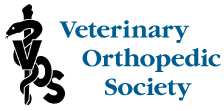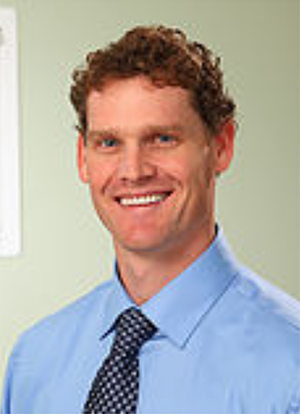VOS 2019 Conference Labs
VOS is pleased to offer hands-on labs for our 2019 attendees.
Below are details for each lab, including links for more information and registration. Labs will be held from 9:30 a.m. until 3:30 p.m. at Beaver Run Resort & Conference Center in Breckenridge, Colorado. VOS would like to thank Biovision Veterinary Endoscopy, Owl Manor Veterinary, and Arthrex Vet Systems for offering these wonderful opportunities for our members. Space is limited. Register today!
Monday, February 11, 2019
Needlescope Application with Point of Care Biologics
Presented by Biovision Veterinary Endoscopy and Owl Manor Veterinary
Course Description: Lead the way and learn the latest arthroscopic diagnostic surgical technique, "NeedleOscopy" and biologic intra-articular administration under visualization. The purpose of this wet lab is to familiarize veterinarians with the ease maneuvering a 1.2mm (18-gauge) needle arthroscope in a joint, processing autologous point-of-care devices, and applying autologous protein solution under visualization. The lab will focus on performing joint lameness diagnostics, blood processing through a newly available point-of-care device, and arthroscopic guided administration under visualization on canine cadavers.
Many advances in canine musculoskeletal diagnostic imaging have been made in the past years with the use of MRI and improved ultrasound machines. Unfortunately, many times radiographic images don't show the problem because they show very little soft tissue, which is a common cause of stifle soreness. The NeedleView scope modality has helped practitioners to improve the ability to obtain a definitive diagnosis so that they could determine the appropriate treatment plan. A complete joint exploratory and / or administration of an autologous protein solution can be performed in a few minutes without general anesthesia on a canine while the canine patient is sedated and the joint locally blocked. This procedure obviates the need for general anesthesia surgical procedure, but in some cases, routine arthroscopy is required. The procedure allows the surgeon to document intraarticular findings to determine the best course of treatment. Pro-Stride APS is a proprietary dual-device system whose output produces a concentrated solution of cells, platelets, growth factors, and anti-inflammatory proteins. The output of the device is all-natural (from the patient's own blood), has clinically demonstrated effectiveness, and is convenient (no incubation, <20-minute processing, ambulatory).
Course Instructors:
Dr. Chad Devitt
Chad Devitt, DVM, MS, DACVS
After graduation, Dr. Devitt was an intern at the Animal Medical Center in New York City. Chad graduated from his internship in 1993 and received the President’s award for Intern of the Year. From New York City, he traveled to Fort Collins, Colorado, beginning a three-year small animal surgical residency at Colorado State University Veterinary Teaching Hospital. During his residency at CSU, he developed many of his professional interests including reconstructive surgery, minimally invasive surgery and surgical oncology. He also completed a Masters Degree in Veterinary Clinical Sciences (Surgery). Following, his surgical residency, Dr. Devitt became a Surgical Oncology Fellow at the Animal Tumor Center at Colorado State University in 1996. During his fellowship, he received additional training and experience in the diagnosis and treatment of cancer in small animal patients. Performing surgeries such as limb salvage in dogs with osteosarcoma, radical maxillofacial surgery, and brain tumor resections.
In February of 1997 Dr. Devitt passed the American College of Veterinary Surgeons board exam and became a board certified Surgeon. He moved to St. Petersburg, Florida following his fellowship to join the Tampa Bay Veterinary Specialist in 1997. During a summer trip back to Colorado in 1999, he visited VRCC’s new facility and soon after, he joined the VRCC Surgery team. When away from the hospital, Dr. Devitt enjoys mountain biking, windsurfing, fly-fishing, and back-country skiing.
Dr. Kristin Kirkby Shaw
Kristin Kirkby Shaw, DVM, MS, PhD, DACVS, DACVSMR
Dr. Kristin Kirkby Shaw is an accomplished and highly skilled double board-certified veterinary surgeon who has done extensive research in soft tissue surgery and rehabilitation. She has published numerous journal articles and textbook chapters, received several awards and has spoken at national and international conferences. Dr. Shaw received her DVM from the University of Florida in 2003, before completing a one-year small animal internship in Colorado. She returned to the University of Florida for a four-year small animal surgical residency and to pursue her master’s degree, conducting research on ischemic kidney injury and kidney transplants. In 2008, Dr. Shaw became a Diplomate of the American College of Veterinary Surgeons. She spent an additional two years at the University of Florida as a faculty member in the Soft Tissue Surgery department while conducting her PhD research on methods of decreasing post-surgical complications of gastrointestinal surgery. In 2010, Dr. Shaw moved to Seattle and began working in private practice. She became board certified in Veterinary Sports Medicine and Rehabilitation in 2013. When she’s not performing surgery, you can find Dr. Shaw running, snowboarding, traveling, relaxing in downward dog, or simply spending time with her husband, Aaron, their Frenchie, Beans and their new Labrador puppy, Arrow.,
Dr. Sam Franklin
Sam Franklin, MS, DVM, PhD, DACVS, DACVSMR
Dr. Franklin is originally from Arlington, Virginia and obtained a bachelor’s degree from the University of Virginia and a Master of Science from the University of Maryland in ecology before moving to Colorado to pursue veterinary studies. He earned his DVM cum laude from Colorado State University in 2007 followed by an internship at the University of Pennsylvania. He then moved to the University of Missouri to complete a small animal surgical residency and a PhD investigating the use of stem cells and bioabsorbable materials for replacing arthritic canine hips. Following the residency and PhD he spent one year in private practice in upstate New York before becoming an assistant professor of orthopedics and sports medicine at the University of Georgia. At the University of Georgia he pursued his interests in minimally invasive orthopedic surgery, regenerative medicine, use of orthobiologics such as platelet-rich plasma and stem cells, and musculoskeletal diagnostic imaging. He has published over 30 peer-reviewed journal articles, seven book chapters, and provided over 60 presentations at national and international veterinary meetings. He is a board-certified diplomate of both the American College of Veterinary Surgeons and the American College of Veterinary Sports Medicine and Rehabilitation and he is an ACVS Founding Fellow in the field of Minimally Invasive Orthopedic Surgery.
Dr. Franklin is very excited to move back to Colorado with his wife, two daughters, and two dogs. Outside of veterinary medicine he enjoys spending time with his family and is a sports enthusiast. His most common pastime is running outdoors with his dogs although he also likes cycling, snowboarding, swimming, and tennis. He also used to play soccer avidly including in college and professionally and is eager to teach his daughters to play both soccer and tennis, although they seem to prefer ballet and tap dancing instead!
Tuesday, February 12, 2019
Canine Unicompartmental Elbow (CUE) for Elbow Dysplasia
Presented by Arthrex Vet Systems
Course Description: A focused laboratory for treating medial compartment disease in the canine elbow. This laboratory will include a combination of short, cutting-edge lectures focusing on product design, diagnosis of the disease, and treatment options, in addition to a dry lab and wet lab for each participant to get hands-on experience.
Lectures will cover in detail the current and prior treatments for medial compartment disease, as well as product design and equipment, clinical studies, and surgical approach and debridement of the structures of the canine elbow.
Each participant will practice on a sawbones model to familiarize themselves with the equipment and proper placement of the implant before focusing on a cadaver specimen. Experienced and proficient instructors will guide each participant through the training session to ensure the participant has grasped the technique.
Course Faculty:
Ian Holsworth, BVSc, Dip ACVS
Jonathan Suber, DVM, Dip ACVS
Ned Williams, DVM, Dip ACVS
Learn More: Learn more about the VOS 2019 Conference in Breckenridge, Colorado.





